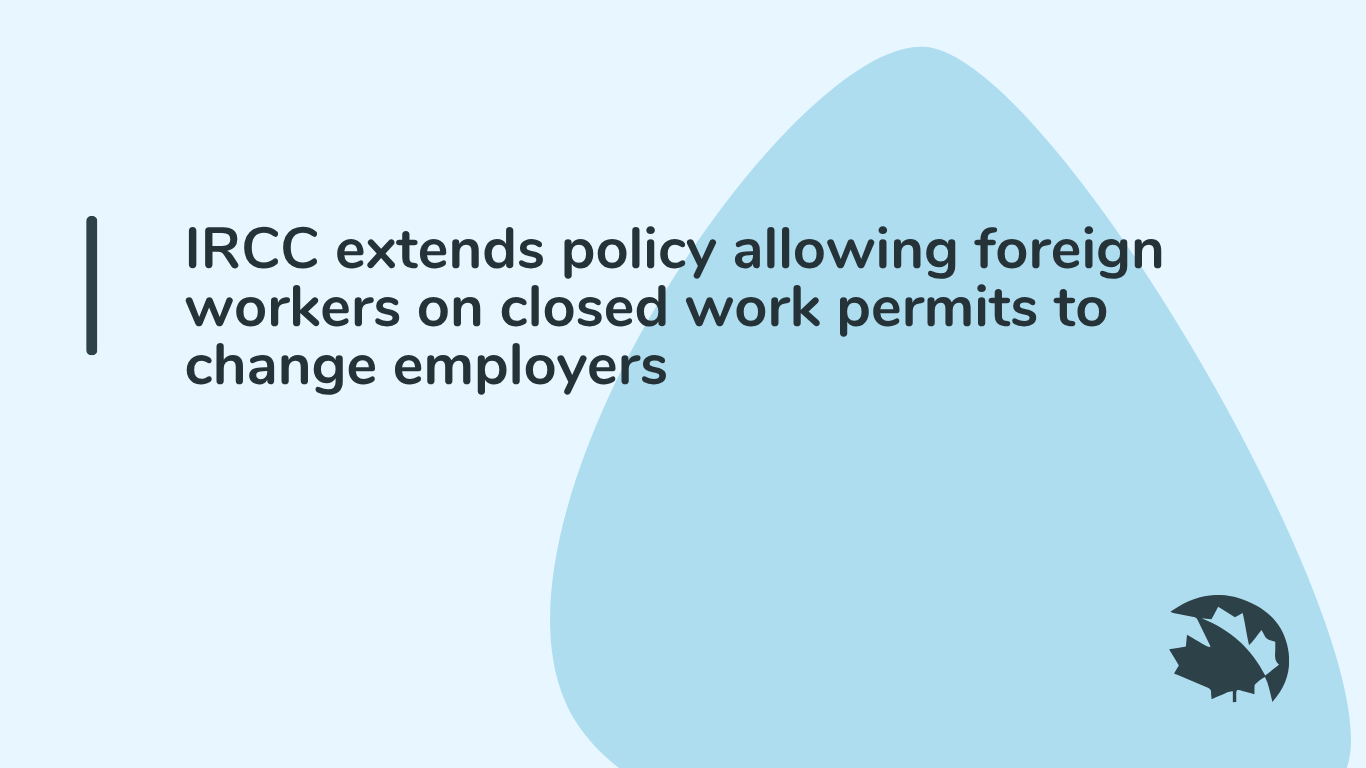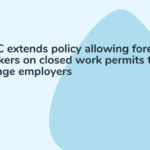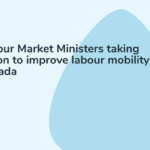Temporary foreign workers fill important labour and skills gaps in all sectors of the Canadian economy. Workers are expected to fulfil their employment contracts and arrive in Canada with the intent to work with the employer who has recruited them and provided the offer of employment. There may, however, arise situations beyond either the worker’s or the employer’s control where continuing the employment contract is no longer possible. This could include, but is not limited to, situations such as taking on a new role with the same employer, lay-offs, conflict or incompatibility within the workplace, or seeking a better compensation package or a professional growth opportunity with a different employer that leads the worker to have to obtain a new work permit.
Workers in these situations have to apply for a new work permit and have to wait for their work permit to be fully processed before starting the new job. This could mean a delay of several weeks and result in a prolonged break in employment for the worker and a frustrating wait for employers who sought to hire amongst the temporary foreign workers already in Canada.
Public policy considerations
Aligned with the Government’s goal to reduce the inflow of new temporary workers to Canada, it is imperative to better utilize the skills and training of the temporary foreign workers already here as well as offer workers a viable and timely alternative to change employers if they need to do so. A timely transition to new employment is beneficial to both employers and workers alike. The employer is able to hire the worker, who is already in Canada, and have them start work quickly, and the worker can remain financially stable without a prolonged break in employment.
Therefore, the objectives of this public policy is to allow temporary foreign workers already in Canada who are changing jobs or employers, and who have secured a job offer under the terms of either the Temporary Foreign Worker Program or International Mobility Program, to more quickly begin work in advance of a final decision on the work permit application.
Therefore, I hereby establish that, pursuant to my authority under section 25.2 of the Immigration and Refugee Protection Act (the Act), there are sufficient public policy considerations that justify the granting of exemptions from the requirements of the Act and the Immigration and Refugee Protection Regulations (the Regulations) listed below to foreign nationals who meet the conditions (eligibility requirements) set out below.
Accordingly, measures are set out below to enable foreign workers, in Canada with valid work authorization, who are required to obtain a new work permit before commencing a new job, to begin working in a new job while their work permit application is pending.
Individuals expected to benefit from these measures include foreign nationals who:
- are on “maintained status” and are authorized to work while their work permit application is pending, but who are bound to the conditions imposed on their expired work permit such that they cannot move to a new occupation or employer while on maintained status;
- continue to hold a valid work permit that limits them to working for a named employer, but need to transition to a different occupation or employer for reasons that may include having been laid-off; or
- are work-permit exempt, but require a work permit to work in a new occupation or for a new employer.
Conditions (eligibility requirements):
Based on public policy considerations, delegated officers may grant an exemption from the requirements of the Regulations identified below if the foreign national:
- is in Canada with valid temporary resident status;
- meets the requirements of paragraphs 199(a) or 199(b) of the Regulations;
- has submitted
- a work permit renewal application under subsection 201(1) of the Regulations to perform work described in subparagraphs 200(1)(c)(ii.1) or 200(1)(c)(iii) of those regulations, for which a decision has not yet been made;
or - a new work permit application to perform work described in paragraphs 200(1)(c)(ii.1) or 200(1)(c)(iii) of the Regulations, for which a decision has not yet been made;
- a work permit renewal application under subsection 201(1) of the Regulations to perform work described in subparagraphs 200(1)(c)(ii.1) or 200(1)(c)(iii) of those regulations, for which a decision has not yet been made;
- intends to work for a new employer and/or occupation as specified by the job offer included in their work permit application described in 3;
- has applied for the public policy exemption using the electronic means identified by the department for that purpose, or with an alternate format provided by the Department if the foreign national is unable to use electronic means; and
- has requested that the exemption be applicable until a decision is made on their work permit application.
Provisions of the Regulations for which an exemption may be granted:
- Paragraph 183(1)(b) – the condition to not work unless authorized by Part 9 or 11 of the Regulations.
- Subparagraph 185(1)(b)(i) to (iv) – the obligation to comply with conditions imposed regarding the type of work, the employer and times and periods of work a temporary resident is permitted to engage in, or prohibited from engaging in, in Canada.
- Section 196 – the requirement to be authorized to work in Canada by a work permit or the Regulations.
The exemptions granted will apply until a decision is made on the work permit application referred to in condition 3 of this public policy, or until that work permit application is withdrawn.
Other Admissibility and Selection Criteria
Foreign nationals eligible under this public policy are subject to all other applicable eligibility and admissibility requirements not exempted under this, or another, public policy.
Effective date and expiration
This public policy revokes and replaces Temporary public policy to exempt foreign nationals in Canada from certain requirements when changing employment during the coronavirus (COVID-19) pandemic signed on May 6, 2020.
This public policy takes effect 12 weeks after it is signed.
This public policy is in effect until it is revoked by the Minister of Immigration, Refugees and Citizenship Canada.
Source: canada.ca




